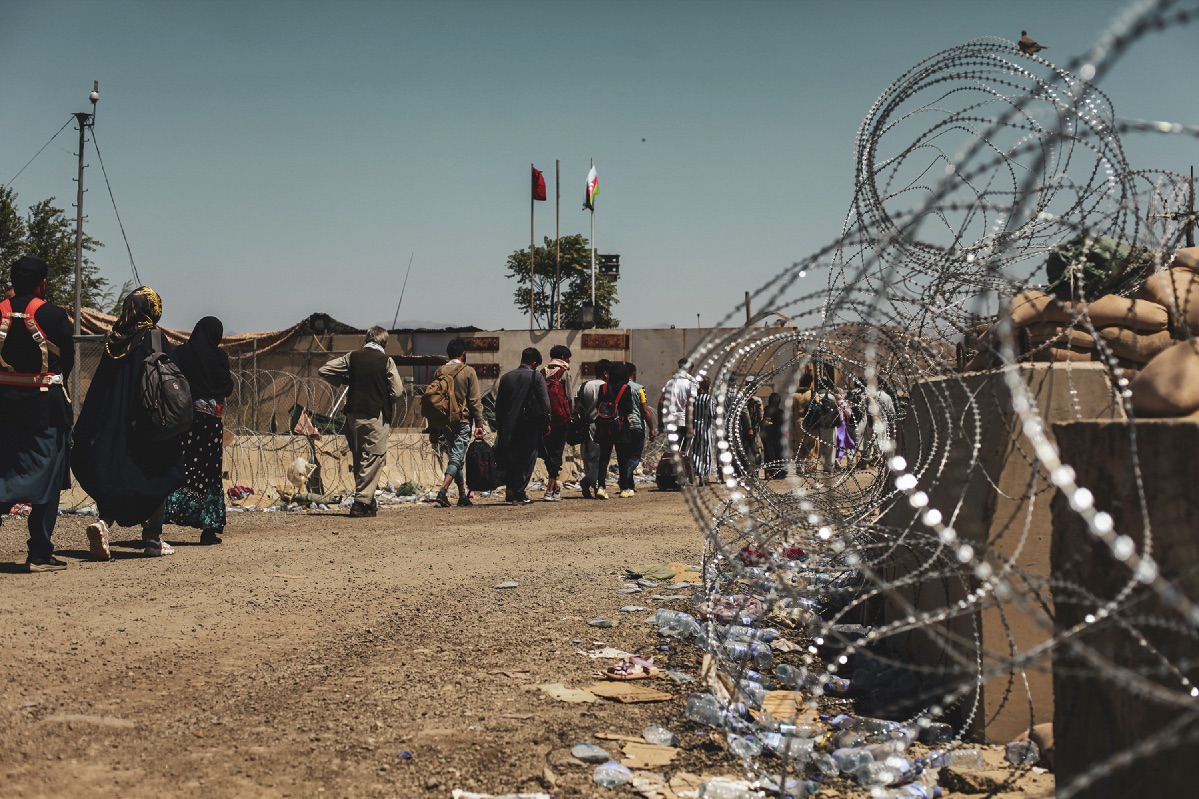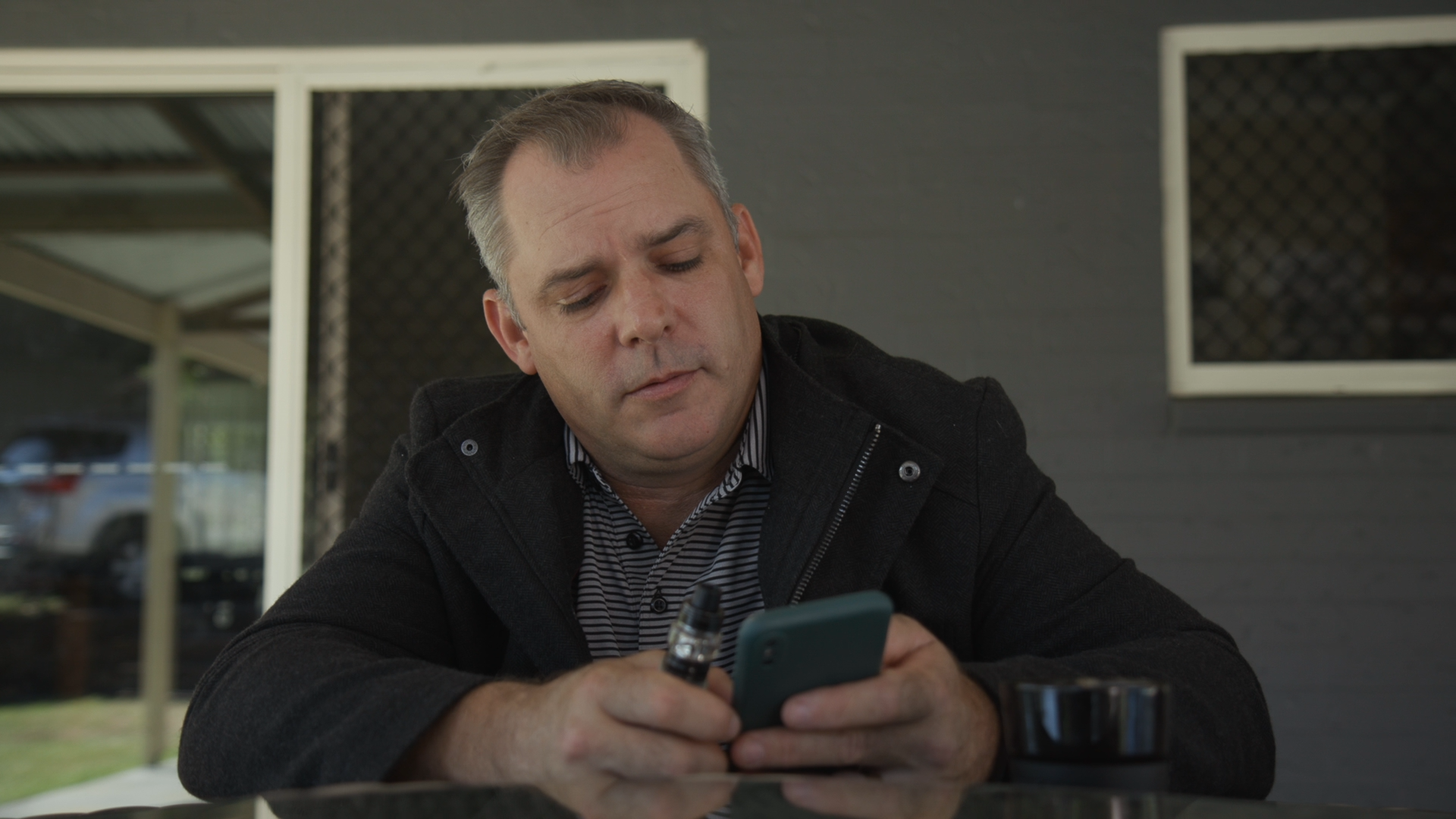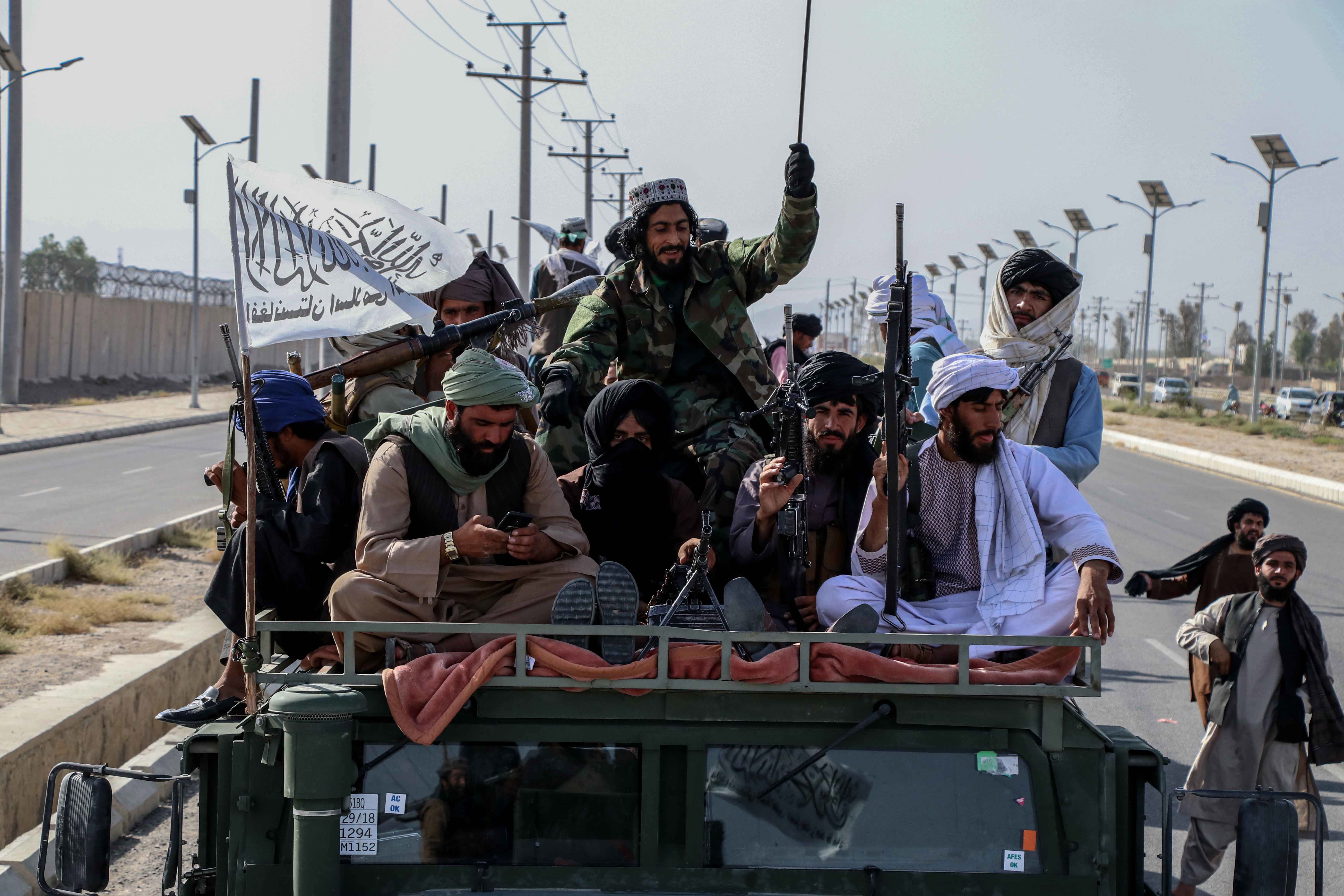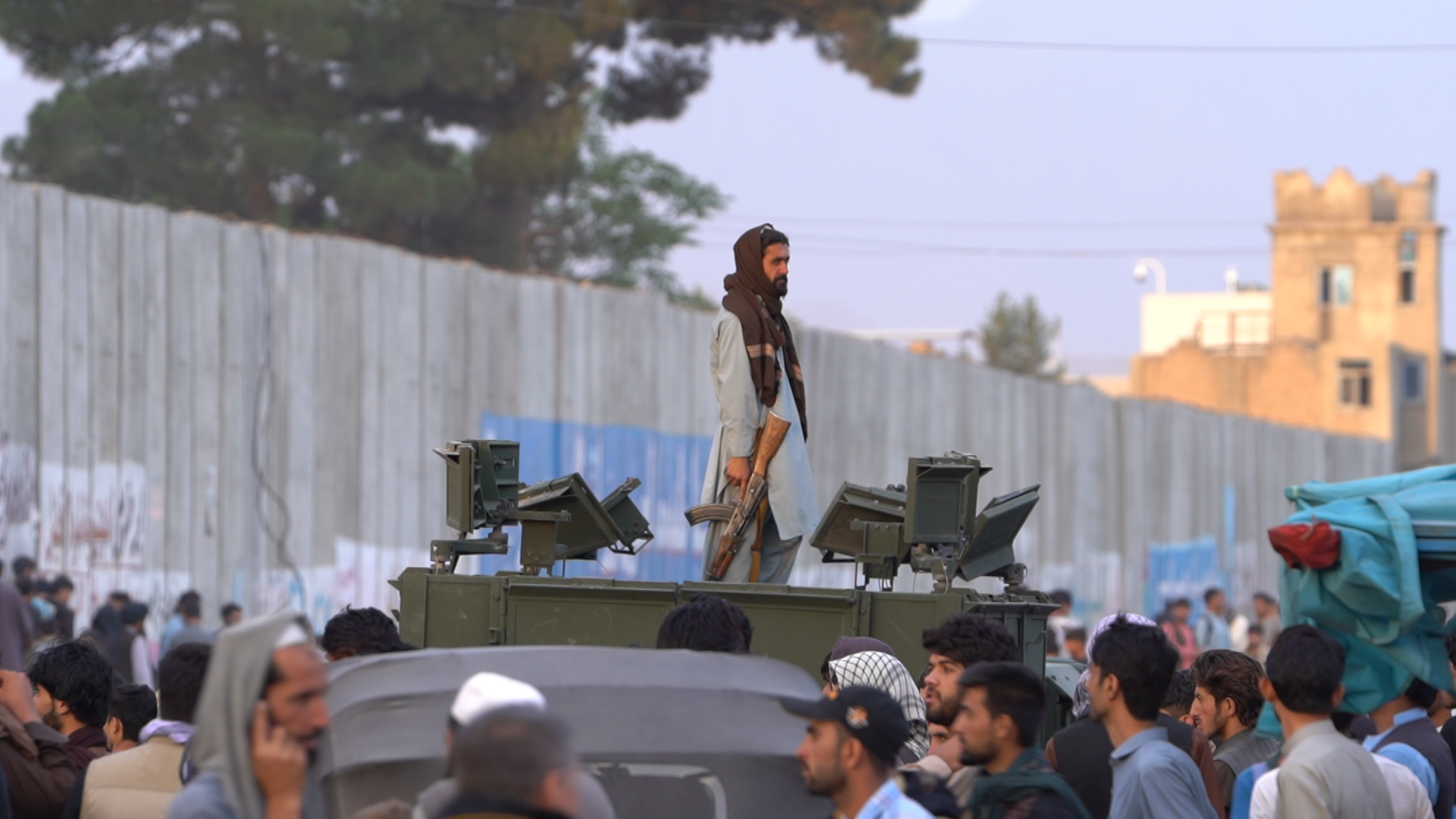An Afghan interpreter who worked with Australian troops in Kabul says he was lashed by the Taliban as he desperately tried to flee the country with his young children.
Tim* was an interpreter at Kabul's Camp Qargha, where he worked with Australian troops who were training the Afghan army.
As international forces began pulling back from Afghanistan, Tim joined thousands of Afghans at Kabul airport who were scrambling to leave the country in the face of a resurgent Taliban.
“I have small children and it was really stressful when we were at the airport," he told SBS Dateline.
"Those days were really bad days for us, for all of our families. We didn't have any hope."
While trying to enter Kabul airport, Tim says he was lashed by the Taliban.
His family finally made it inside the airport after walking around the perimeter for an hour and crossing through sewage on to the tarmac. They were met by military personnel and escorted inside the terminal.
Once inside, the family tried to board Australian evacuation flights but were refused.
“When we were in the airport … I saw one of the Australian officers standing in the front,” said Tim.
“I showed [them] the appreciation papers, recommendation papers, everything … and then he said show me the paper you got for the Afghan Locally Engaged Employees visa.
“So I say - they rejected me.”

Evacuees wait to be processed at Hamid Karzai International Airport on 25 August 2021. Source: US Marine Corps
The family slept inside Kabul airport for three nights with little food or water before US officials helped the family access flights to the UK.
“Somebody came to us down there and asked, who are you and what you're doing here.
“So I explained all of my experience, all of my duties that I had with the coalition forces. I showed everything to them and he promised to send me to London.
“And nowadays we are in London and excited and cheering.”
Out of around 120,000 people rescued from Kabul in an international effort, Australia evacuated more than 4,000.
Speaking to SBS Dateline before the Taliban took Kabul, Tim said he was one of the last interpreters standing from his team.
Before he left he was hiding in Kabul, moving neighbourhoods regularly and waiting for news on his visa application.
“When I go somewhere, I put my eyeglasses, I shave my beard. I change my profile every month or maybe in two weeks,” he said.
“They [The Taliban] think we are traitors.”
The visa lottery

Former army captain Jason Scanes has been trying to get Afghan contractors like Tim to Australia since 2013. Source: SBS Dateline
Former army captain Jason Scanes has been trying to get Afghan contractors like Tim to Australia since 2013.
Aware of lengthy processing delays, he has been calling for a review of the visa program for years.
“It is an absolute humanitarian crisis, and I think our response has been extremely slow,” he said.
“We've seen applications taking six and seven years to be processed, and individuals and their families who have been deemed at risk of persecution, remaining in Afghanistan for six or seven years.” He founded Forsaken Fighters, an organisation to help Afghan contractors navigate the complex Locally Engaged Employee visa process.
He founded Forsaken Fighters, an organisation to help Afghan contractors navigate the complex Locally Engaged Employee visa process.

Taliban forces in Kandahar, Afghanistan, 1 September 2021. Source: EPA
They are calling on the government to adapt to the crisis on the ground.
“What should have been happening was that the Australian government should have recognised the urgency of the situation, and they should have adapted the policy to fit the change landscape in Afghanistan.
“And they've failed to do that.”
A new Kabul

The Taliban now claim full control of Afghanistan. Source: SBS Dateline
They have promised amnesty to those who served with foreign forces, alongside an inclusive government that would reflect the ethnic makeup of the country.
But on Tuesday, all the top positions in cabinet were handed to key Taliban leaders. Many in Kabul do not trust promises made by the Taliban.
Since landing in London, Tim has been contacted by the Department of Defence and told that while he was not certified for a LEE visa, he will be given priority for consideration as part of 3000 places in a humanitarian programme it announced in response to the Taliban’s takeover.
Tim says he is considering applying but awaits further communication from the Department of Defence.
As he waits safely in London, he reflected on his journey and the fate of Afghanistan.
“I have a daughter, so I didn't want my daughter to live under the control of the Taliban because I want (her) to become a doctor like her mother.
“It was too late - when I needed to go to rescue myself, nobody asked me."
In response to an enquiry about Tim’s case, the Department of Defence told SBS Dateline they do not comment on individual cases – and stated “all applications for certification for a humanitarian visa are considered carefully against the criteria detailed in regulations approved in 2012”.
*Tim's name has been changed to protect his identity and his family.


